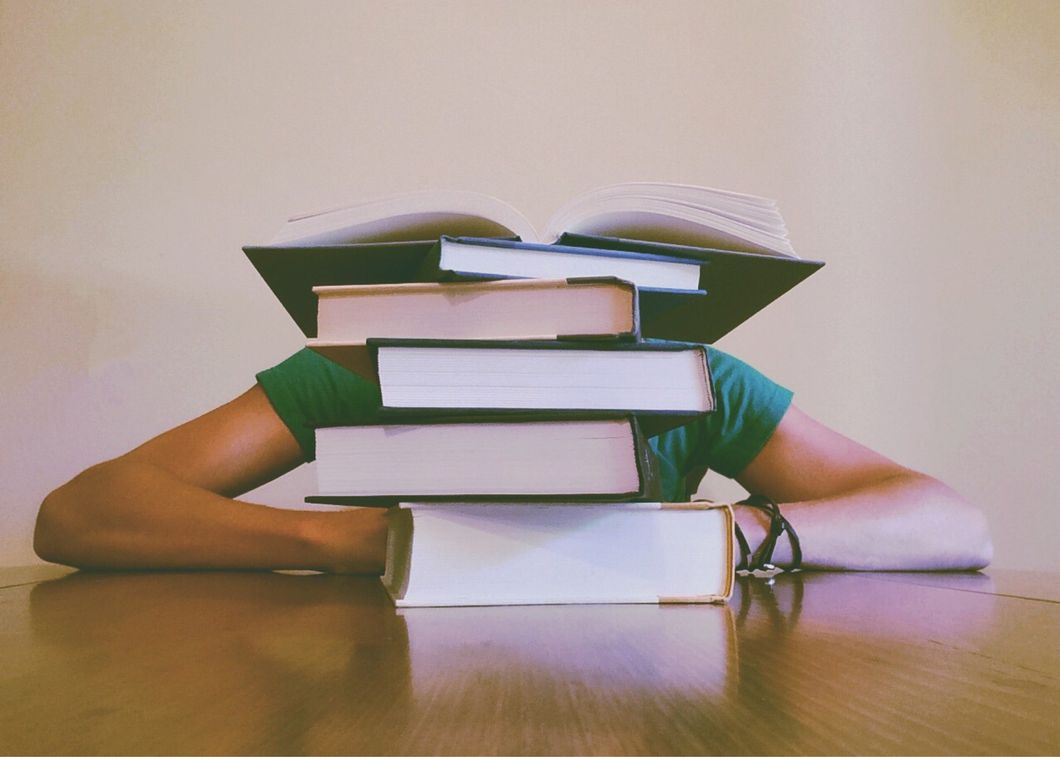Have you ever mercilessly studied for an exam, only to be slapped in the face with the realization you failed? We've all been there at least once. The fun part is there is psychology behind it and the problem may be you're just not properly channeling your energy in a way that's most efficient for you. With back to school fast approaching (and some already back in it), I decided to do a little research on why you can study all night and still not get the grade.
But it's not as crazy as you may think - every student just has their own learning style in which they best absorb, process and retain information. These tips aren't just for college, but can be used in high school, middle school, and even the workplace. Keep in mind there are many different ways you can help yourself and these are only the tip of the iceberg.
The first thing to note is the different ways people learn and to figure out which works best for you. By understanding your learning style you can find techniques better suited to the way you learn and retain information. The four main learning style types are:
Visual Learners
Visual learners best learn through images and visualization. They learn most effectively by seeing, making graphs or diagrams, flashcards, focus on titles when reading, underling when reading, best understand imagery provoking words, benefit from demonstrations and enjoy visually pleasing presentations.
Kinetic Learners
Kinetic or kinesthetic learners learn best through physical activities as opposed to listening to lectures. Studying is most helpful through trial and error, flashcards, studying with others, studying in short blocks, examples when taking notes, doodling, hands-on approaches, using multiple senses to engage in material, and solving real-life problems.
Read-write Learners
Read-write learners benefit from taking many detailed notes. They learn by reading and writing, rewording notes in different ways, create bullet point lists, translate diagrams into summaries, write questions based on material, understand explanations on paper/screen, organize thoughts, create lists and translate lessons into words.
Auditory Learners
Auditory learners benefit best from hearing information so it's helpful to record lectures and read material out loud. This means they learn by listening and verbalizing, benefit from keywords and phrases, explain concepts in your own words, use word associations, respond well when things are explained and think in a linear fashion.
You can take a quiz here to get a good idea of which style you learn best with.
With that in mind, you can assess the way you're studying and the way you'll study best with your style and remedy any conflicts. However, if you still struggle, there are several different habits college students in particular make while studying that are actually the worst mistakes you can make.
One of the biggest one, (that I am also guilty of), is studying with distractions. This means no background noise like Netflix, distracting music, and keep a distance between anyone you might be tempted to talk to. If you need background noise or work well with music, there are several ambient playlists on Youtube or Spotify that can help you focus on your material.
Another mistake almost everyone makes is pulling all-nighters. It seems pretty natural when you're a college student, sadly, but it does more harm than good. Sleep deprivation will make your mind cloudy, thus hurting your abilities to perform well on your exam and I find most of the time I get so miserable I focus more on that than any sort of retention of material.
Do yourself a favor and just review the notes before bed - it's not easy, but if you try to relax instead you'll thank yourself in the morning. I find it helpful to write down assignment due dates, test dates, etc in a calendar so you can always keep track of your time. It's also helpful to to establish a study zone that fits your personality and learning style that can be comfortable enough for you to relax and get things done.
These may seem like no brainers, but you'd be surprised what a difference one or two of these changes will make. Over the years of being college I have tried many different techniques and also no techniques at all (which sucks). I have found that I do best when I actually try to give attention to my studying environment as opposed to just the material.
I get more done with less strain when I find what works best for my style. So instead of telling myself I can crank out some work in bed with the TV on in the background, I'll get up and push myself to the library so I can have a quiet space to focus. Sometimes it isn't easy, but your grades will thank you in the long run.
Good luck and happy studying!

















